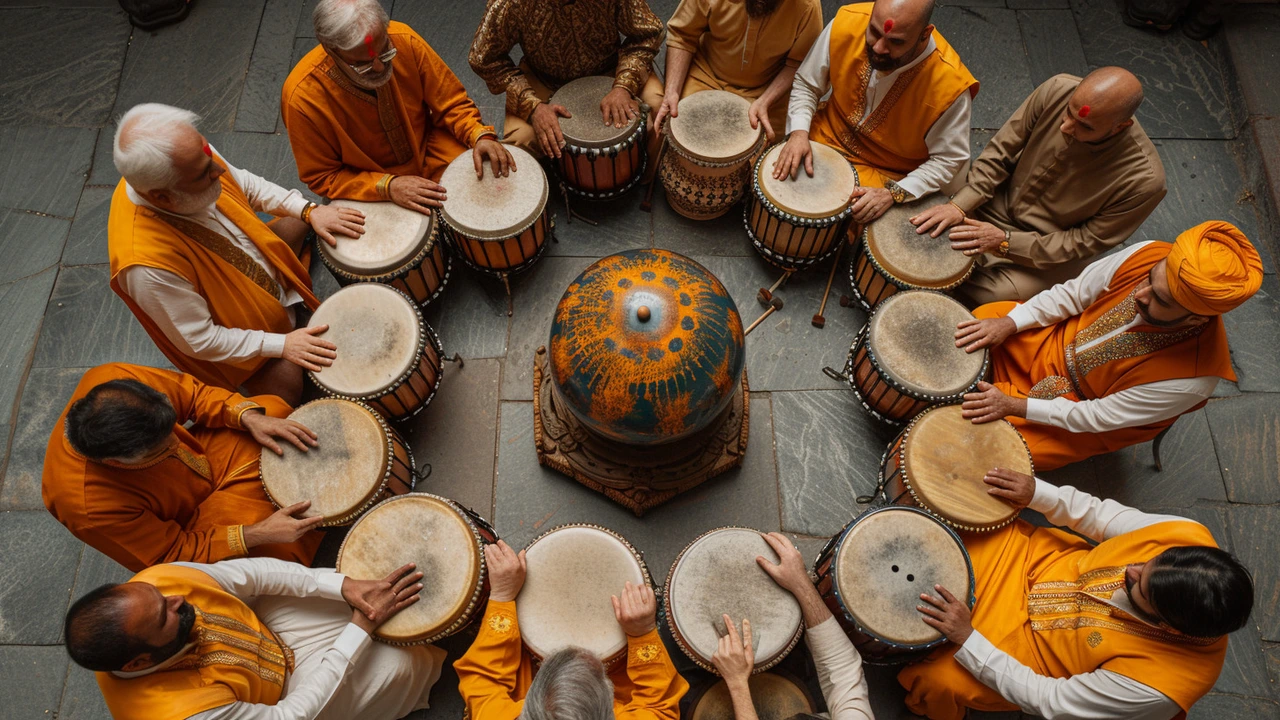The Root of Folk: Music's Ancient Origins
The genre of folk music beams with traditions that have transcended through generations. This particular branch of the musical tree has its roots firmly planted in the soil of our ancient past. Folk music, characterized by its simplicity and directness, was the people's soundtrack, based on their daily life, their struggles, their dreams, and their joy. As Zephyr, my story too intersects with that of folk music, when I found an old vinyl of Pete Seeger in my grandfather's attic. A couple of spins on the gramophone and I too was enchanted by the deep melodies and the authenticity of emotions they relayed.
Folk music was the Wikipedia of the old world - the original mode of storytelling. Its function was to pass messages and stories orally, as most people were illiterate. Interestingly, the ancient Greeks even believed that music had a direct effect on the soul, and folk songs were a chunk of that melody. From rustic fields, the call of sailors, religious chants to tribal rituals, each community presented a unique vibrato to this genre. Humble and authentic, folk music was a mirror to the society of its time.
When Folk Met Commercialization: The marriage of tradition and business
Matthew Arnold once claimed, ‘Culture is the best which has been thought and said’, and this philosophy was adopted by the proponents of the folk revival movement of the 20th century. As an admirer of this genre, the sheer richness, nostalgic narratives, and soothing melodies are what draws me, Zephyr, back in time. So pure and so raw was this harmonization of expression, that it captivated audiences beyond its traditional demographics.
The so-called Folk-Revival came into full swing after World War II when intellectuals started recognizing the cultural value within the walls of these humble melodies. National and international organizations were formed to preserve, promote, and research these songs. Names like Woodie Guthrie and Bob Dylan painted new colours on the folk canvas. They utilized folk music as their canvas - a cry for social justice, peace, and change.
Crossing the Waves: Expansion and Influence of Folk in Music
The world of music is an ever-evolving sphere; one where boundaries blur, definitions change and contributions are painted with a mosaic of influences. Folk music is no different. It has evolved, absorbed cultural nuances, and found a place in modern music. Folk music has had a significant influence on several types and genres of music. It has intermingled with blues, country, rock, and even pop, changing the essence and definition of these genres themselves.
As a blogger and music enthusiast, Zephyr, I've watched and studied how the rambling folk tunes of the early part of the 20th century have grown, matured, and blended so seamlessly into a wide array of music, we hear today. Folk has truly become a global phenomenon, interconnecting narratives, feelings, and experience that resonates even today.
It's in the rhythm: Characteristics of Folk Music
What, now, makes a song a folk song? The sound of an acoustic guitar? The vocals of men and women cloaked in worn flannels singing about everyday life, the land, and tradition? Yes, but there's an aspect that’s often overlooked, that is, its impromptu nature. The community gatherings and the impromptu melodies shared over bonfires, the captivating tales passed down generations in enchanting ballads - that’s the enchantment of Folk music that I, Zephyr, have always been entranced by.
Very often, folk music is accompanied by native instruments. The guitar may be a common feature, but the heart of folk music lies in ethnic instruments like the accordion, banjo, and harmonica. The lyrics, often simple and direct, deliver a poignant storytelling experience to the listener.
Folk Around the World: Global Variance
The world is full of vivacious music cultures, and in each corner hides a treasured folk song. From the Alpine Yodels of Switzerland to the Bhangra beats of Punjab, folk music has adapted to the culture, environment, and lifestyle of the region. Each offering a unique story, a captivating rhythm, and a peek into their culture.
As Zephyr, having lived in different countries and experienced the joyous carnival of Samba in Brazil, seen the tribal rituals of Africa, and immersed myself in the heart-wrenching ballads of the Irish pubs, I can tell you, the beauty of folk music is its ability to reflect the spirit of a place, its history and people with such authenticity and passion.
Keeping the Traditions Alive: Folk Music Today
The heartbeat of folk music has continued to beat strong and steady even in today's fast-paced world. I often find myself, Zephyr, in the rabbit hole of YouTube, discovering passionate and talented artists around the globe who have picked up the thread from the old and woven it into a tapestry that speaks to the new generation. Artists like Mumford & Sons, Laura Marling, and Bon Iver have rekindled the flame of folk music and fused it with modern lyrical and instrumental influences, resulting in an explosion of the indie-folk genre.
Infact, the recent rise of folk-pop charts the influence of folk in modern music. A magical blend of traditional folk elements with pop's catchiness, this genre showcases artists like Ed Sheeran and Lumineers. So, my fellow folk enthusiasts, even in this modern era of autotunes and electronic beats, the spirit of folk music still thrives and continues to enchant its listeners.

